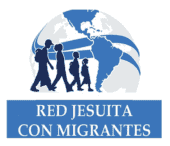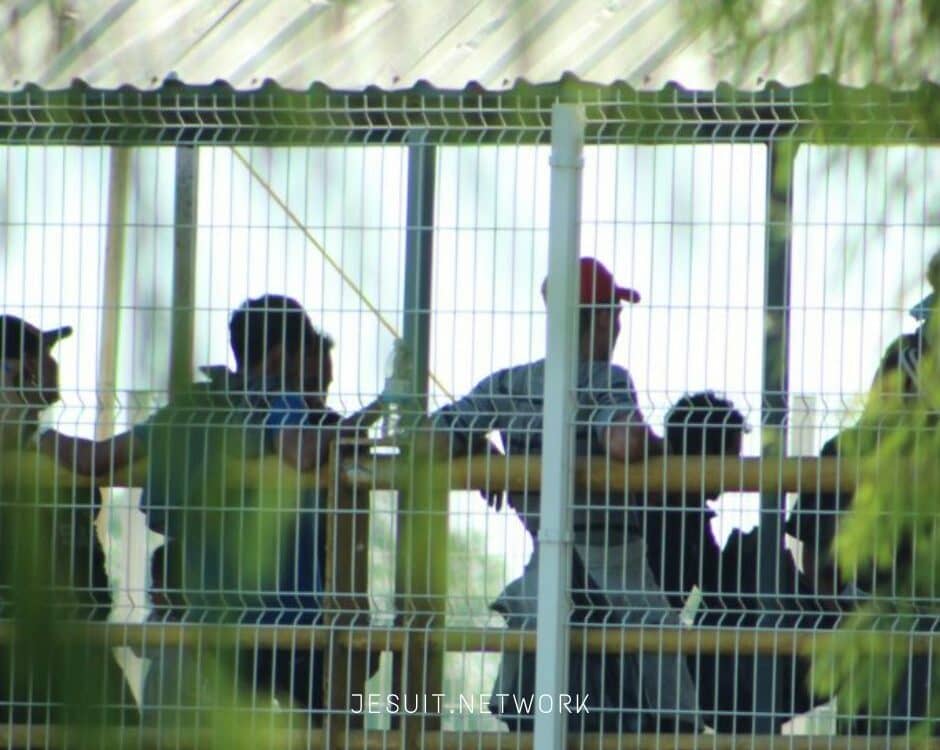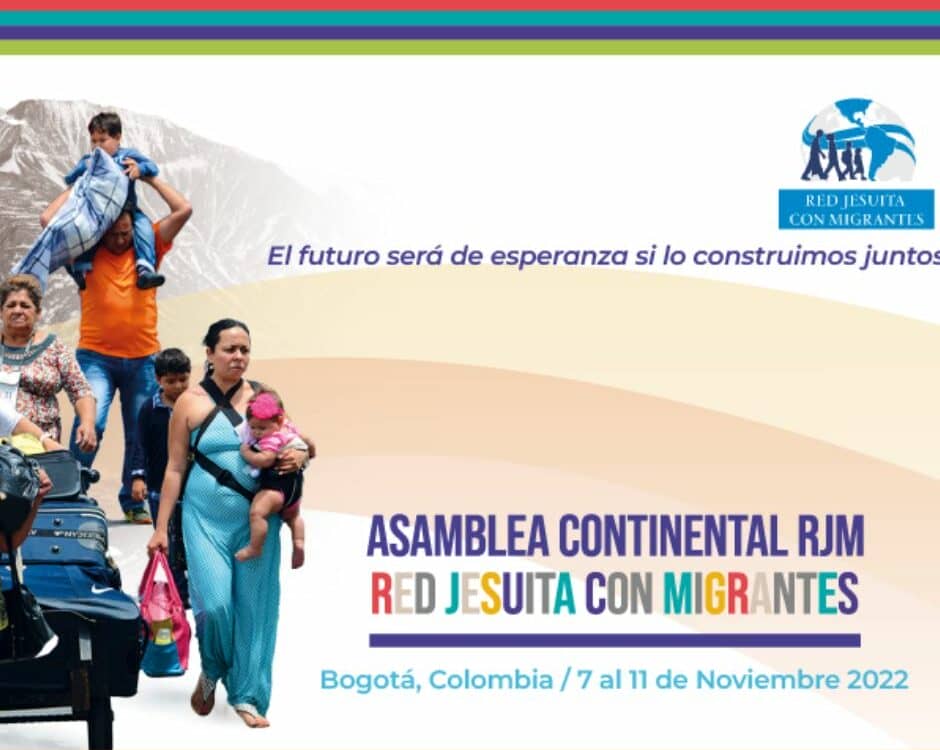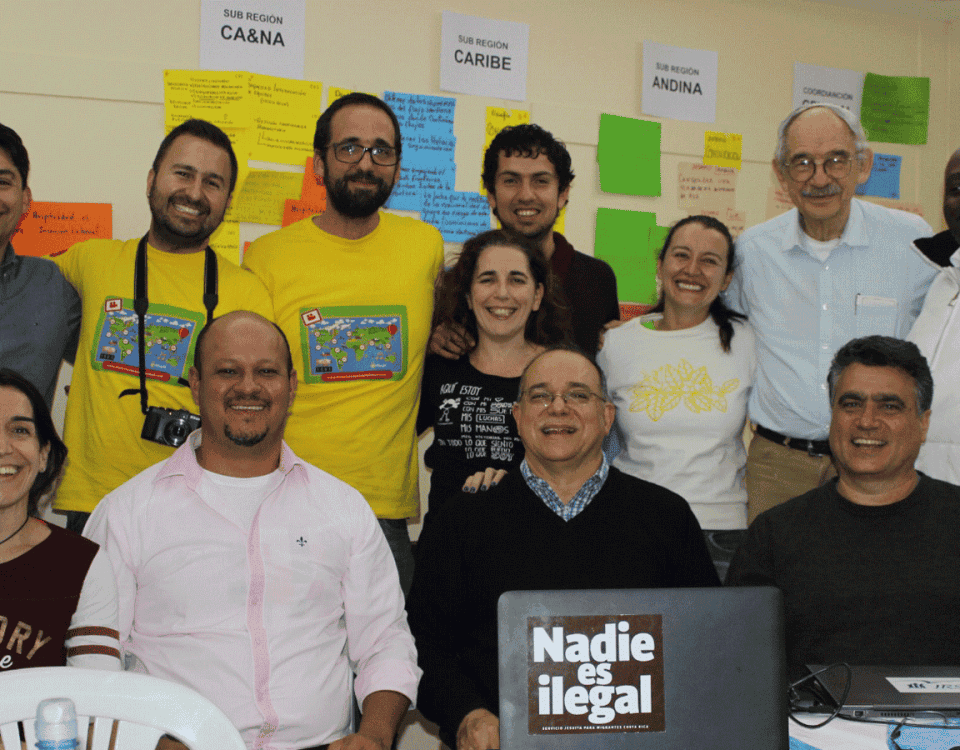This website uses cookies so that we can provide you with the best user experience possible. Cookie information is stored in your browser and performs functions such as recognising you when you return to our website and helping our team to understand which sections of the website you find most interesting and useful.
A Network To Accompany the Unprotected
From October 15 to 19, some 70 people from 32 organizations linked to the Jesuit Network with Migrants met in El Salvador to resume the Presential Assembly of the Central America-North America region (RJM CANA).
Although in the year 2022, within the framework of the continental assembly of the network, there was a representative meeting of people and organizations of the region, there really had not been a face-to-face CANA assembly since the one that took place in Tijuana in November 2019. Therefore, even with all the recognition to the learning of the virtual, the first note of this meeting was marked by the joy of being able to share in person.
On the 16th, hosted by the UCA of El Salvador, and prior to the work logic of the assembly, we held an Academic Colloquium, organized by the Theoretical and Research Dimension of CANA, which allowed us to update the social and political context of the region, especially from the perspective of the reality of forced migration. We addressed the violence that expels, including climate violence as a factor of new exoduses; we identified trends in the flows and policies of the region; we addressed various experiences of what integral accompaniment means, including perspectives that we do not make explicit so often – such as working with the families of migrants – or that challenge us as a novelty – such as the field of emotional health and mental health; etc.
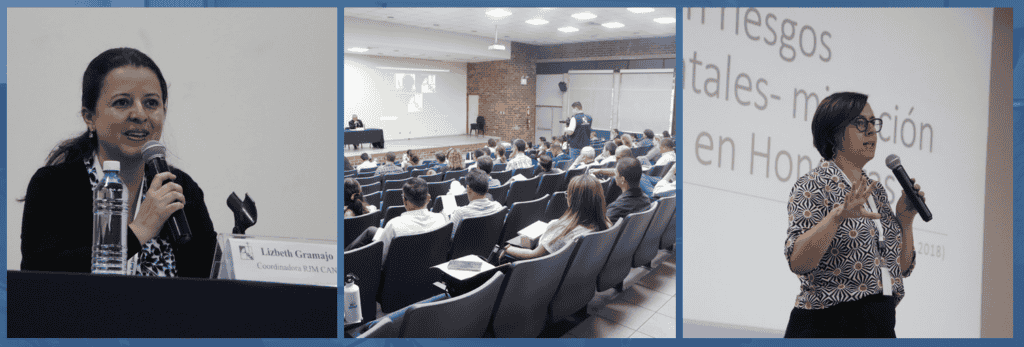
In the same context took place the presentation of the book Monseñor Romero. Living testimony of justice and Christian reconciliation, in a dialogue between the author, Rafa Moreno SJ and Omar Serrano, vice rector of social projection of the UCA. Because of the link between the network and Rafa, because of the inspiration of Monsignor Romero in the struggles we continue today and because we celebrate him on “sacred ground”, the UCA martyrs (in addition to the participation of music committed to history and humanity) was perhaps the most emotional moment of the week.
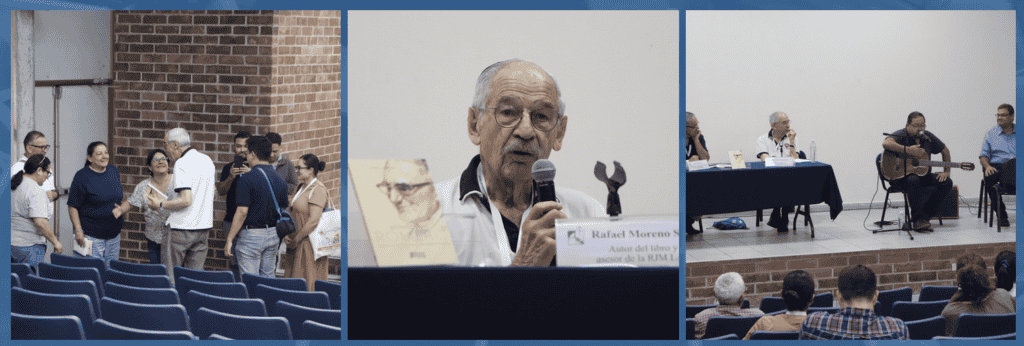
During the days of the assembly (17, 18 and 19) the work followed three main stages: I) Identify the challenges of the context and our own strengths as a network; II) Evaluate and plan the work of the network in each of its dimensions (Socio-pastoral, Theoretical Research and Advocacy) and also inter-dimensionally and III) Establish agreements for the future work of the RJM CANA. In these three stages it became evident what we have incorporated in the DNA of the network, we need to work in alliances with others, and reaffirmed something that in recent years is becoming more evident, an effective work as a network needs to look beyond our borders as a region, the continental and global perspective in the analysis and network planning is both a necessity and an opportunity to raise our level of agency.
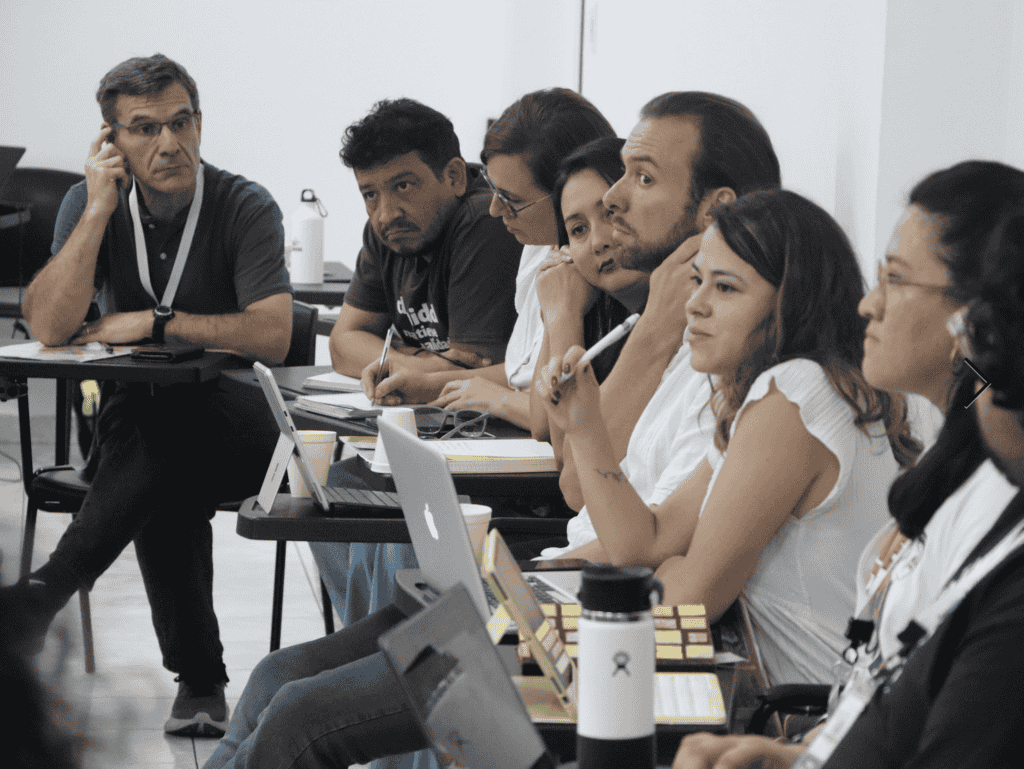
One of the immediate fruits of the Assembly, after the whole exercise of contemplation of reality, is a communiqué as RJM CANA with clear messages about policies, narratives and our work in a larger framework, that of the Church and also of Civil Society.
To the States we ask that:
- Guarantee the right of every person to a dignified life in their territory, addressing the political and socio-environmental crises that deepen the violence that forces many people to flee.
- Assume responsibility for safeguarding the rights of migrants and refugees, with a differentiated approach for people in especially vulnerable situations.
Remove obstacles to accessing asylum and promote accessible alternatives for migratory regularization. - Do not use migrants as a bargaining chip in upcoming elections.
- Do not prioritize economic or political interests as a negotiating factor in migration agreements and summits.
- Implement public policies that promote informed, accompanied and protected migration.
And guarantee the protection of life, security, integrity and non-criminalization of those who defend and accompany them.
For the media to position narratives from a focus on rights and solidarity, echoing the call of Pope Francis: welcome, protect and integrate.
To the Catholic Church and society in general that:
- Let us promote actions of solidarity, hospitality and reconciliation to eradicate racism, discrimination and xenophobia, recognizing the contribution of migrants to the construction of more diverse and plural societies.
- Let us go out to meet migrants in the most vulnerable conditions and in the most unprotected places.
All the days of the assembly began and ended in the dynamics of the MJN Caravan of Hospitality, which this year has circulated through Venezuela, Ecuador, Panama and Costa Rica, made its stop during the CANA Assembly in El Salvador and is currently in Honduras and will continue on to Mexico and the southern border of the United States.
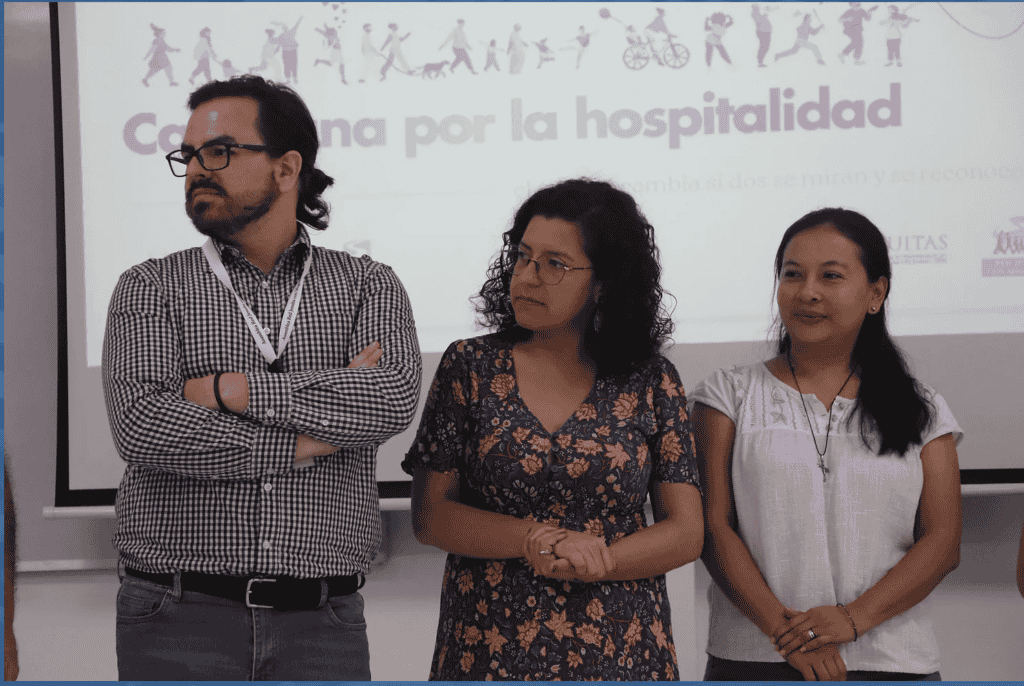
It has been a few days of intense work and projection of the future, how to organize hope, from creativity, generosity and the audacity of being a network in alliances and with that clear vocation of being where there is the greatest lack of protection.
This has been possible thanks to the RJM CANA coordinating team and the warm welcome of our people in El Salvador. A thousand thanks and congratulations!
The whole assembly was inspired by the motto of the World Day of Migrants and Refugees, “Free to choose whether to migrate or to stay”, aware of the enormous leap that remains for us as humanity so that this exercise of the right to migrate or to stay can really be an effective and universal right. We continue dreaming and walking in that utopia.
DESCARGA EL COMUNICADO EN ESPAÑOL (SOON AVAILABLE IN ENGLISH)
Article originally published in the RJM web

